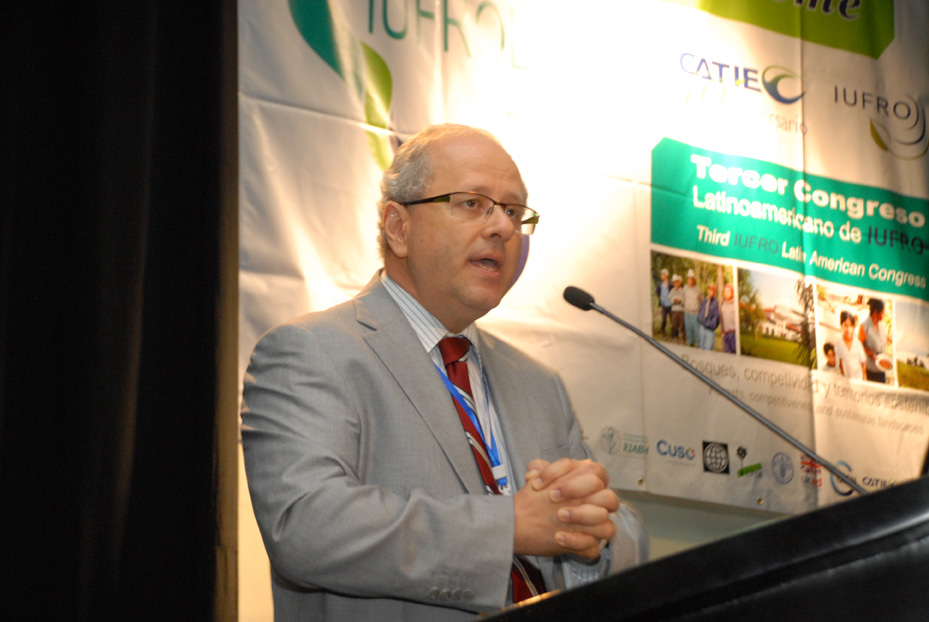Employment and Sustainability in Latin American Forests
Employment and Sustainability in Latin American Forests
Main Objective of Unique Entrepreneurship Guide
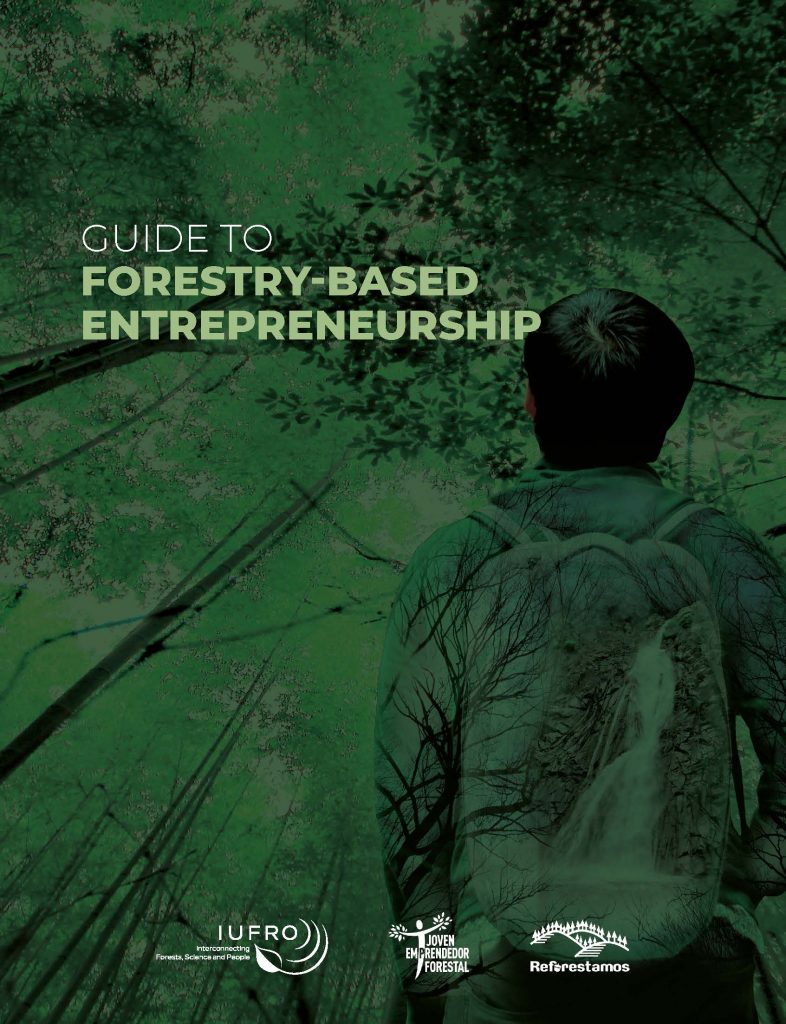
IUFRO and the International Forestry Students’ Association (IFSA) – through a Joint IUFRO-IFSA Task Force on Forest Education (JTF) – have joined forces with Reforestamos in developing an ambitious “how-to” forest-based entrepreneurship guide for use throughout Latin America.
Reforestamos is a Mexico-based NGO with a mission to safeguard forest landscapes needed for sustainable development in the region. It has, among other initiatives, supported the creation of small and growing businesses by people living in and from the forests.
The result of the IUFRO-IFSA-Reforestamos collaboration is the Guide to Forestry-Based Entrepreneurship.
Read more…IUFRO Spotlight #88 – Using a social science lens on the forest bioeconomy
IUFRO Spotlight #88 – Using a social science lens on the forest bioeconomy

In many countries, forests are important sources of renewable biomass and figure prominently in bioeconomy strategies.
Forests can be stretched beyond their traditional applications and used in textiles, chemicals, and cross-laminated timber, among other things, and can provide climate and ecological benefits, lead to rural employment opportunities and add to regional growth.
Read more…Helping ensure that forest bioenergy is environmentally sustainable
NOTE: This text is reblogged without changes from a blog post authored by Dr. Brian Titus that originally appeared on the BMC blog network, http://blogs.biomedcentral.com/on-physicalsciences/2021/04/15/forest-bioenergy-sustainable/, on 15 April 2021. This blog post is licensed under a Creative Commons Attribution 4.0 International License. One of the authors of the original study, Dr. Viktor Bruckman, is the Deputy Coordinator of the Former IUFRO Task Force “Forest Biomass Network”.
Helping ensure that forest bioenergy is environmentally sustainable
Can removal of woody materials from forests for renewable bioenergy production be environmentally sustainable? A recent review in Energy, Sustainability and Society demonstrates that a wide range of environmental and social values can be protected when harvesting forest biomass, such as harvest residues, salvaged sub-merchantable trees, diseased or dead trees, and whole-tree thinnings.
Brian Titus 15 Apr 2021
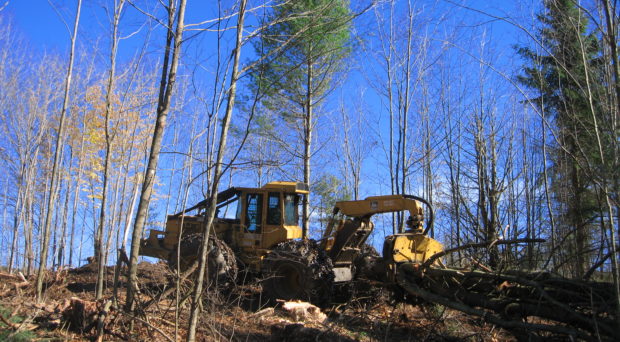
Photo credit: David Paganelli
The Science under the Christmas Tree
The Science under the Christmas Tree
An Interview with IUFRO’s Christmas Trees Working Party Coordinators
https://www.iufro.org/science/divisions/division-2/20000/20200/20209/
Christmas trees have become a universal holiday season symbol. During the last 20 to 30 years, as the worldwide consumption of real Christmas trees has risen to exceed 80 million annually, the science and technology behind plantation Christmas tree production have also developed rapidly, particularly in Europe and North America.
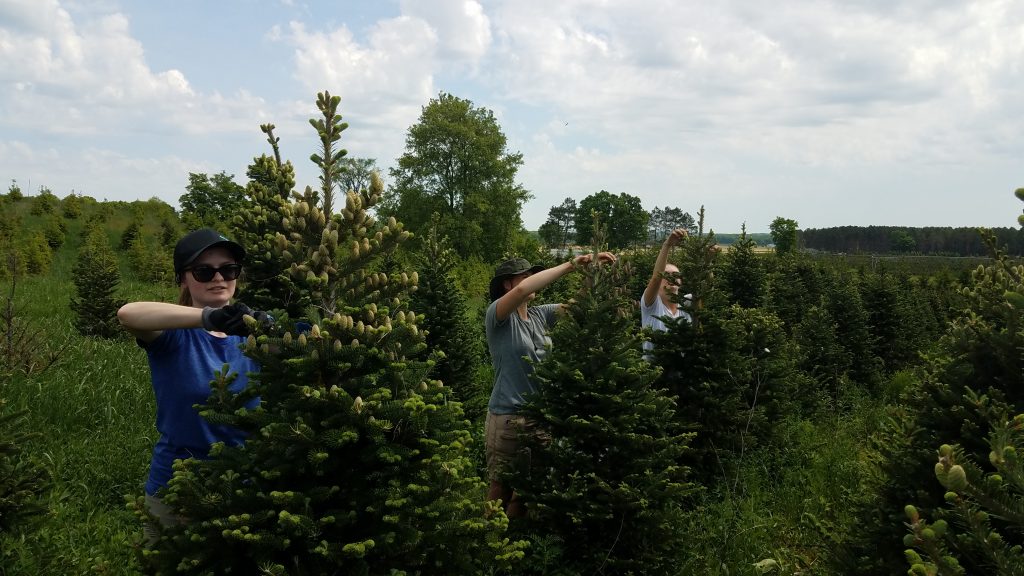
Research and Development for Sustainable Forest in Asia
Keynote Presentation by Don Koo Lee, Seoul National University, Korea, Tuesday 25 Oct 2016
This most inspiring talk about the important roles of trees, soil and forests for human life highlighted ways of how to achieve sustainable development and showcased success stories, especially the historic achievement of reforesting Korea.
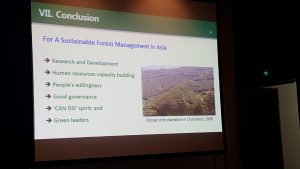
Professor Don Koo Lee speaking about sustainable forest management in Asia. Photo: Gerda Wolfrum, IUFRO Headquarters.
The goods and services provided by forests are manifold and indispensable for people and the environment. Forests are crucial, among other things, for stabilizing soil, providing water resources, supporting biodiversity, protecting against natural hazards, delivering timber and non-timber products, and, quite importantly, combatting climate change. In order to ensure that future generations will be able to enjoy the same benefits from forests, sustainability is indispensable in the management and use of natural resources. Read more…
Spotlight #34 – Investigating Potential and Risks in Biomass
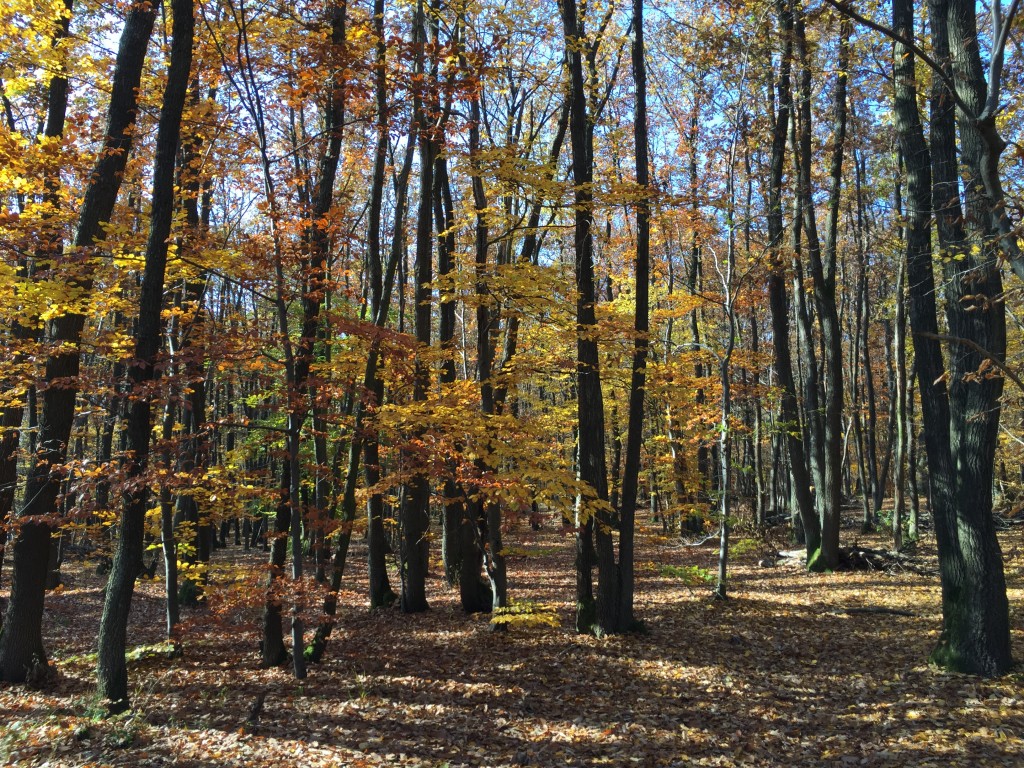
Coppice woodlands once provided significant shares of biomass for thermal energy in the proximity to urban areas, while representing hotspots of biodiversity. Can we adopt traditional management practices to today’s needs and still ensure sustainable production? And how can we harmonize existing guidelines to achieve this goal? The image shows a Quercus-Carpinus dominated outgrown coppice forest that is situated within the city boundaries of Vienna, Austria. (Photo by Viktor Bruckman)
Renewable resources are critical to the sustainable future of our planet. That means biomass is being looked on, in many ways, as a potential game-changer.
It is seen as a mitigator of climate change, as a source of energy and as the source for a variety of bio-based products that range from wood to bio-plastics and composite materials.
Recognizing this, IUFRO’s newly constituted Sustainable Forest Biomass Network Task Force plans to explore the potentials and the risks of further development of biomass – specifically biomass from forests.
The Task Force is one of several organized to advance knowledge under five research themes in accordance with the IUFRO 2015-2019 Strategy. Read more…
IUFROLAT III Keynote Address by Eduardo Mansur, FAO
Challenges and Opportunities for Sustainable Forest Management in a Changing Context
Wednesday, 12 June 2013
The first keynote speaker at IUFROLAT III was Eduardo Mansur, Director of FAO’s Forest Assessment, Management and Conservations Division. He talked about “Challenges and Opportunities for Sustainable Forest Management in a Changing Context”.
First, however, he conveyed greetings from Eduardo Rojas Briales, Assistant Director-General and Head of the Forestry Department, Food and Agriculture Organization of the United Nations, on whose behalf he was giving this presentation.
Mansur started by asking what the world should be like in 2050, when the world’s population is estimated to have exceeded 9 billion people.
Pressure on natural resources and the need for food will have increased tremendously by that time. He identified the following major challenges:
1) Food
2) Energy
3) Climate Change
In order to respond adequately to these, which are in fact closely interrelated, he explained various necessary approaches such as the landscape approach. He also underlined the big potential of restoration for improving the environmental situation without affecting food security.
In view of these challenges, the main objectives of FAO are:
1) Eradication of hunger
2) Elimination of poverty and strengthening of economic and social progress
3) Sustainable management of natural resources
Part of the response to these challenges is better governance of resources and more social participation. Integration and inter-sectorial approaches are key here. This is also especially true for forest research, which needs a more integrated approach.
Mansur explained concepts and tools that FAO has worked with so far and will continue to use in the future, such as the concept of sustainability, the forest resources assessment (FRA), criteria and indicators, etc.
In conclusion, he identified communication and social networks as a key tool to change people’s often blurred conceptions especially with regard to forest management. Science and research are essential here as they can provide the data and knowledge which will help to do away with erroneous perceptions and trade-offs between biodiversity and forest use, for example.

